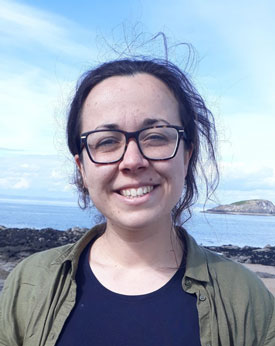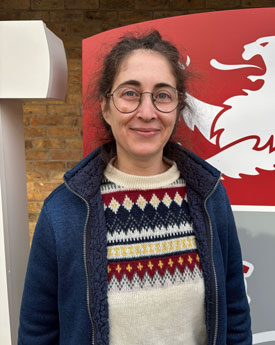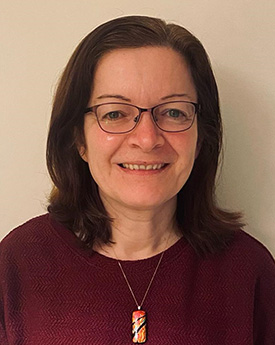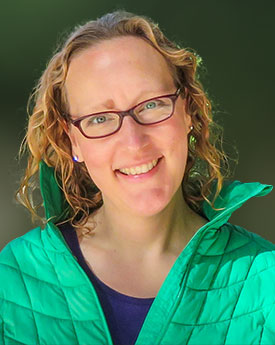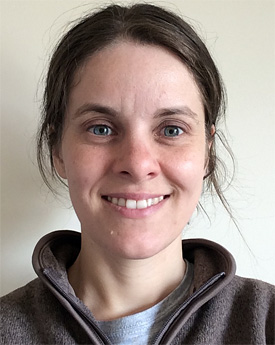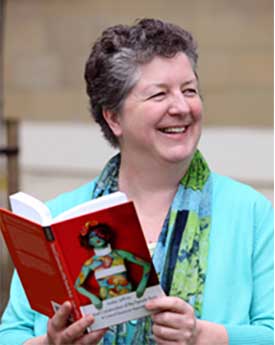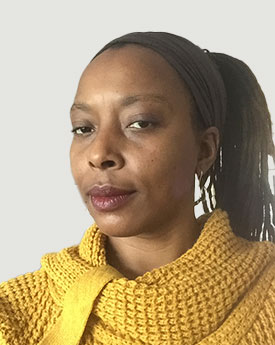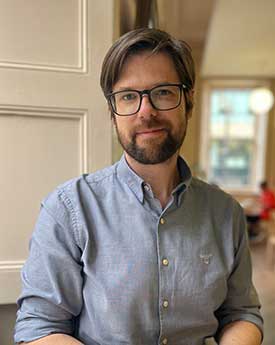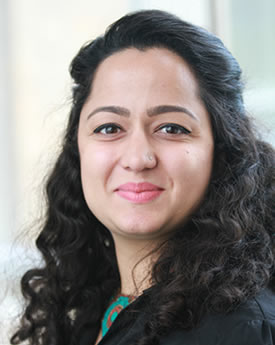People
- Selected letter: All
- Q
Loading People
We couldn't find anybody who matched your criteria
Lancaster Literacy Research Centre, LTRG - Language Testing Research Group
Centre for Child and Family Justice Research
Centre for Higher Education Research and Evaluation, Centre for Social Justice and Wellbeing in Education
Culture and Communication Research Network (CULCOM), DisTex - Discourse and Text Research Group, FASS Health Hub
ESRC Centre for Corpus Approaches to Social Science
DisTex - Discourse and Text Research Group, ESRC Centre for Corpus Approaches to Social Science, UCREL - University Centre for Computer Corpus Research on Language
Centre for Alternatives to Social and Economic Inequalities
Centre for Higher Education Research and Evaluation, Centre for Technology Enhanced Learning
DEMAND - Dynamics of Energy, Mobility and Demand
Research Group in Cognitive Linguistics
ESRC Centre for Corpus Approaches to Social Science
Centre for Alternatives to Social and Economic Inequalities, Centre for Child and Family Justice Research, DSI - Society
Centre for Child and Family Justice Research
Phonetics Lab
LTRG - Language Testing Research Group
Centre for Higher Education Research and Evaluation, Centre for Social Justice and Wellbeing in Education
Brain and Bilingual Experience Lab (BaBEL), Research Group in Cognitive Linguistics
Centre for Higher Education Research and Evaluation, Centre for Social Justice and Wellbeing in Education, Centre for Technology Enhanced Learning
Centre for Social Justice and Wellbeing in Education
Security Lancaster, Security Lancaster (Behavioural Science), Security Lancaster (Societal Threats)
Digital Humanities Centre, DisTex - Discourse and Text Research Group, ESRC Centre for Corpus Approaches to Social Science, UCREL - University Centre for Computer Corpus Research on Language
Policing Academic Centre of Excellence, Security Lancaster, Security Lancaster (Policing), Security Lancaster (Policy, Law and Ethics)
Centre for Child and Family Justice Research
Centre for Child and Family Justice Research
Centre for Higher Education Research and Evaluation
Centre for Child and Family Justice Research
Centre for Child and Family Justice Research
Centre for Alternatives to Social and Economic Inequalities, Centre for Child and Family Justice Research, Centre for Gender Studies, DSI - Society
ESRC Centre for Corpus Approaches to Social Science
Centre for Social Justice and Wellbeing in Education, Lancaster Evaluation Group, Morecambe Bay Curriculum
CeMoRe - Centre for Mobilities Research, Centre for Technology Enhanced Learning, Lancaster Literacy Research Centre

Professor Chris Grover
Deputy Head of School - School of Social Sciences, Professor in Social PolicyCentre for Alternatives to Social and Economic Inequalities, Centre for Child and Family Justice Research, Centre for Crime, Law and Justice
DisTex - Discourse and Text Research Group, ESRC Centre for Corpus Approaches to Social Science, Forensic Linguistics Research Group , Security Lancaster, Security Lancaster (Behavioural Science)
ESRC Centre for Corpus Approaches to Social Science
LTRG - Language Testing Research Group
DisTex - Discourse and Text Research Group, LIP - Language, Ideology and Power Group, Research Group in Cognitive Linguistics
Centre for Gender Studies, Centre for Higher Education Research and Evaluation, Centre for Social Justice and Wellbeing in Education, REAP - Researching Equity Access and Participation
CeMoRe - Centre for Mobilities Research, Migrancy Research Group
Centre for Crime, Law and Justice
Centre for Gender Studies, Centre for Higher Education Research and Evaluation, Centre for Social Justice and Wellbeing in Education
Centre for Technology Enhanced Learning
DisTex - Discourse and Text Research Group, LIP - Language, Ideology and Power Group
LTRG - Language Testing Research Group
Centre for Child and Family Justice Research
Centre for Higher Education Research and Evaluation, Centre for Scholarship and Innovation in Management Education, Centre for Social Justice and Wellbeing in Education, Centre for Technology Enhanced Learning, Institute for Social Futures Fellow, Morecambe Bay Curriculum
Lancaster Product Development Unit
Phonetics Lab
Centre for Social Justice and Wellbeing in Education
Centre for Alternatives to Social and Economic Inequalities
Centre for Alternatives to Social and Economic Inequalities, Centre for Child and Family Justice Research, Centre for Gender Studies, Security Lancaster, Security Lancaster (Policing), Security Lancaster (Sociology)
Centre for Higher Education Research and Evaluation
Centre for Higher Education Research and Evaluation, Centre for Social Justice and Wellbeing in Education, Morecambe Bay Curriculum
Critical Geographies
Lancaster Intelligent, Robotic and Autonomous Systems Centre, LIRA - Society and Human Behaviour, Security Lancaster (Sociology)
Centre for Alternatives to Social and Economic Inequalities, Centre for Child and Family Justice Research, Institute for Social Futures Fellow
Culture and Communication Research Network (CULCOM)
Phonetics Lab
Centre for Gender Studies
Centre for Scholarship and Innovation in Management Education
FASS Health Hub, Lancaster Literacy Research Centre, LIP - Language, Ideology and Power Group
Centre for Social Justice and Wellbeing in Education, Centre for Technology Enhanced Learning
LTRG - Language Testing Research Group
Policing Academic Centre of Excellence
Centre for Crime, Law and Justice, Security Lancaster (Policy, Law and Ethics)
Lancaster Literacy Research Centre
Culture and Communication Research Network (CULCOM), FASS Health Hub
Language Learning Research Lab, Multilingualism and Cognition Research Group, Research Group in Cognitive Linguistics
Brain and Bilingual Experience Lab (BaBEL), Multilingualism and Cognition Research Group
DisTex - Discourse and Text Research Group, ESRC Centre for Corpus Approaches to Social Science, FASS Health Hub, Institute for Social Futures Fellow, ISF Fellows 2019/20, Research Group in Cognitive Linguistics , UCREL - University Centre for Computer Corpus Research on Language
CeMoRe - Centre for Mobilities Research, Centre for Science Studies, DEMAND - Dynamics of Energy, Mobility and Demand, Energy Lancaster
CeMoRe - Centre for Mobilities Research, Institute for Social Futures Fellow
Centre for Alternatives to Social and Economic Inequalities, CPERC - Cultural Political Economy Research Centre
DisTex - Discourse and Text Research Group, Research Group in Cognitive Linguistics , UCREL - University Centre for Computer Corpus Research on Language
Centre for Higher Education Research and Evaluation
DisTex - Discourse and Text Research Group, Lancaster Literacy Research Centre
Centre for Alternatives to Social and Economic Inequalities, Centre for Gender Studies, Migrancy Research Group
Authors and the World, DisTex - Discourse and Text Research Group, Institute for Social Futures Fellow, Lancaster Literacy Research Centre, LIP - Language, Ideology and Power Group
Research Group in Cognitive Linguistics
Centre for Higher Education Research and Evaluation, Centre for Social Justice and Wellbeing in Education
Centre for Gender Studies, Centre for Social Justice and Wellbeing in Education, Morecambe Bay Curriculum, Richardson Institute for Peace Studies
Centre for Crime, Law and Justice
Security Lancaster, Security Lancaster (Sociology)
Centre for Child and Family Justice Research
Security Lancaster, Security Lancaster (Policing)





































